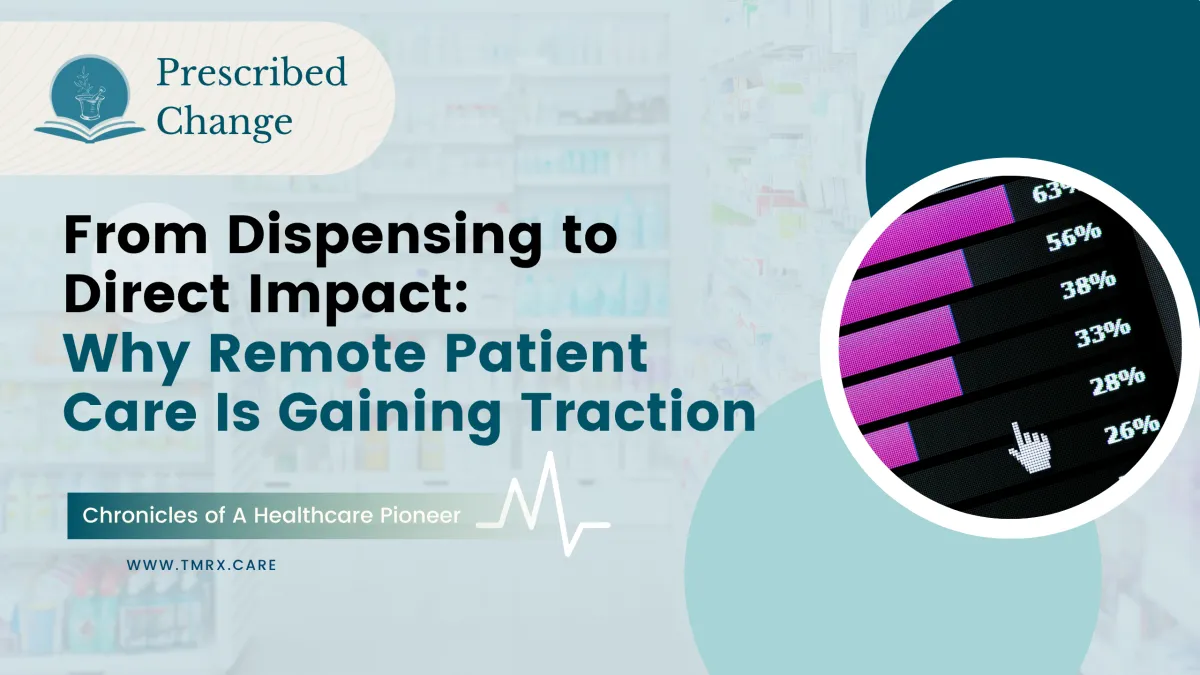
From Dispensing to Direct Impact: Why Remote Patient Care Is Gaining Traction
Let’s be real: transitioning into a remote pharmacy role while holding down your current job can feel overwhelming. Between 12-hour shifts, family responsibilities, and sheer exhaustion, adding one more thing to your plate may seem impossible.
But here’s the truth: you don’t need to quit your job to start building your remote pharmacy career. Many of our Pivot Program students began exactly where you are — working full-time in traditional roles, unsure how to break in, and deeply craving a more flexible, fulfilling path.
If that sounds like you, read on. This post breaks down exactly how you can take small, intentional steps to launch your remote career — without risking your current income.
1. Shift Your Mindset First
Before anything else, you need to believe that a different way of practicing pharmacy is possible for you. The biggest blocker I see isn’t time — it’s mindset. If you’ve been trained to believe there’s only one way to be a pharmacist, that belief will hold you back more than any calendar conflict.
Start by asking:
What part of my current role energizes me?
What does success look like in my ideal career?
Am I willing to start small to gain traction?
If the answer is yes, keep going.
2. Dedicate Just 2-3 Hours per Week
Building something new doesn’t require full-time hours — it requires focused ones. If you can dedicate 2-3 hours per week to learning, connecting, or implementing — you’ll be surprised at how fast the momentum builds.
Use those hours to:
Join a training or mentorship program like the Pivot Program
Learn about Remote Patient Monitoring (RPM) or Chronic Care Management (CCM)
Start building your personal brand online or in local provider networks
3. Start With Shadowing or Micro-Experience
You don’t need to land a full contract out of the gate. Start by shadowing another pharmacist who’s working remotely or volunteering for a small care management project through a local clinic or independent provider.
Experience breeds confidence. And confidence opens doors.
4. Use Your Off Days Wisely
If you work 3 or 4 days a week, your off days are precious. Use that time not just for rest, but for reinvestment. Can you:
Schedule a mentorship call?
Attend a short virtual workshop?
Work on your care management documentation skills?
Even batching small tasks like updating your resume or building your service offer can go a long way.
5. Get Support — You Shouldn’t Have to Do This Alone
One of the biggest misconceptions is thinking you have to figure all this out on your own. You don’t. That’s why I created the Pivot Program — to provide not only training, but community, mentorship, and strategy so you can build while employed.
You’ll get patient scenarios, business templates, billing support, and real-world examples — all tailored for pharmacists ready to pivot, even with full-time obligations.
Conclusion: Start Where You Are
You don’t need to wait for the perfect time. You just need to start where you are, with what you have, and commit to moving forward.
Your next chapter isn’t about working harder. It’s about working smarter, with intention — and remembering that your PharmD holds more value than dispensing alone.
